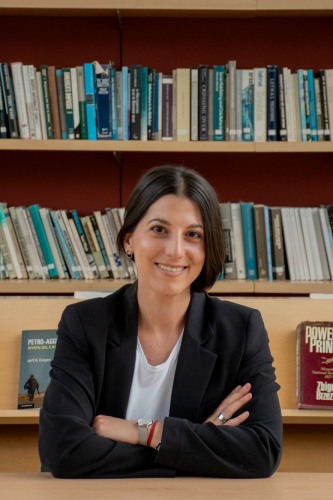
Sofia Vidotto
Biography
Sofía Vidotto is a sixth-year Ph.D. candidate in Political Science at Brown University. She studies the politics of service provision, bureaucracies, and social movements in Latin America. Her dissertation examines how social movement actors, once appointed to senior positions in the national bureaucracy, reshape the delivery of public services and the relationship between the state and residents of urban slums in Argentina. In other work, she explores how embeddedness and local organization condition the implementation of social policy in contexts of institutional neglect. Her research draws on 18 months of fieldwork, administrative data, and a survey experiment with slum leaders. Before beginning her Ph.D., she earned a B.A. and M.A. in Political Science from Universidad Torcuato Di Tella in Buenos Aires, Argentina.
Job Market Paper Title
From the Streets to the State: How Social Movements Bureaucrats Affect Public Service Provision in Argentine Slums
Job Market Paper Abstract
How does the incorporation of social movements into the state bureaucracy affect access to public goods in marginalized communities? This paper examines whether slums socially connected to bureaucrats appointed by social movements at the national level have a better quality of basic services than those without such connection. I test the argument by combining in-depth interviews with an original dataset of over 5,000 national-level bureaucratic appointments in Argentina and administrative data on service quality in all 6,467 registered slums nationwide. Using a staggered difference-in-differences design that leverages the timing of bureaucratic appointments, I show that households in connected slums have better quality of access to drinking water and sewage infrastructure. Additional evidence suggests that these effects are stronger in slums with pre-existing local organizational infrastructure. The findings indicate that bureaucrats appointed by non-party actors can improve access to public services in areas with extremely vulnerable populations where the state is absent. The results contribute to debates on bureaucratic embeddedness, urban inequality, and the consequences of incorporating non-party, non-state actors into senior bureaucratic positions in the Global South.